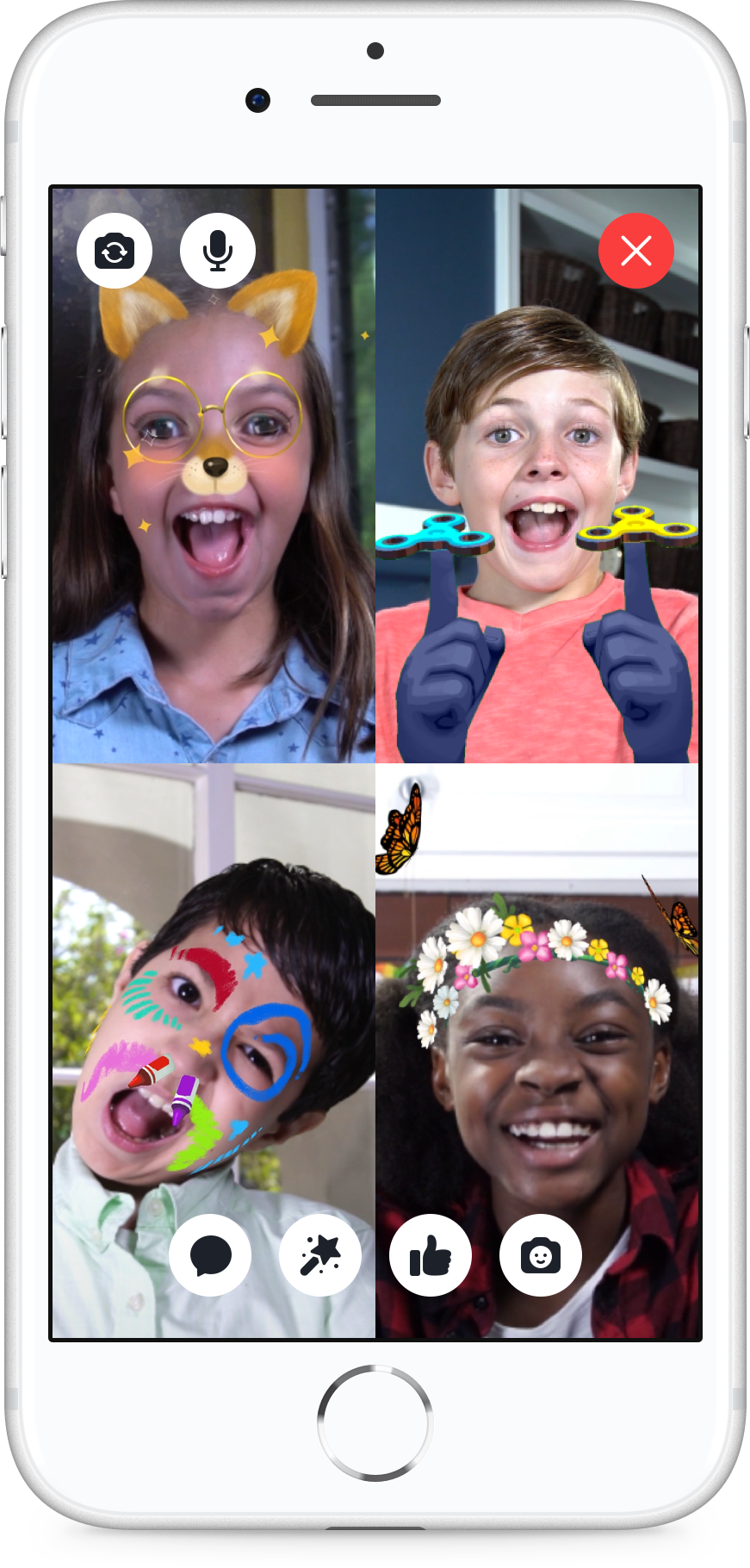Facebook targets 6- to 12-year-old demographic with new Messenger app

If your kids are going to message friends and family, wouldn’t you rather have them do it safely and securely?
That’s the thinking behind this Monday’s launch of Messenger Kids from Facebook (FB), a new standalone, ads-free messaging app aimed at young kids ages 6 to 12, available for iOS devices this week, with Android and Kindle versions coming in a few months. Messenger Kids users can do many of the same things users of the regular Messenger app can do — send text-based messages, video chat, tack on virtual stickers and face masks — but with stricter rules and parental controls in place.
Setting up a Messenger Kids account for a child requires their parent to sign in at first with their Facebook accounts. Once the Messenger Kids account is set up, a child can only chat with people on the app their parents have approved. Both parents and kids can report inappropriate content and block other users; parents are notified from their standard Messenger apps when their kids report other users or if their kids are reported by others. Finally, users of Messenger Kids can’t delete any messages they’ve sent or received inside the app — another safeguard, in case parents want to check what their children have been up to.
Like any business, Facebook’s goals shouldn’t be viewed as entirely altruistic, even if Messenger Kids is free to download and use. Although Facebook remains the largest social network — and Messenger has grown into one of the most popular messaging platforms in the world — signing up new users now presents a new challenge, given how mature and wide-reaching they already are. Messenger Kids presents another way to tap into a subset of the younger demographic.
According to Head of Messenger David Marcus, offering Messenger Kids is another way to give parents more control over what their children read, see and hear on smartphones and tablets, which have become commonplace inside and outside the home. According to Facebook, 93% of 6- to 12-year-old children in the U.S. have access to smartphones and tablets, with about 80% of children in that same age range getting their first taste of social media, too.
So it comes as little surprise then that Facebook says the majority of parents with young children are concerned about their kids potentially interacting with strangers online.
“We understand that this is extraordinarily frightening,” explained Facebook Head of Global Safety Antigone Davis. “Parents care tremendously, obviously, about their children, and we have an opportunity and an obligation really, as one of their largest social media companies to get this right and to help parents answer their needs.”
Channelling ‘Sesame Street’
Messenger Kids is the product of over 12 months of development by the Messenger team, which also spoke to thousands of parents and experts, primarily in the U.S., as well as the UK and Australia. Facebook also set up and consulted a youth advisory committee with experts specializing in child development and online safety.
Dr. Lewis Bernstein, former executive vice president of Education, Research and Outreach for the Sesame Workshop, compares the development of Messenger Kids over the last 18 months to those early years of developing “Sesame Street,” the long-running, iconic show that now airs on HBO and re-airs on PBS. The goal with “Sesame Street,” which aired its first episode in 1969, was to educate children by taking advantage of their infatuation with the “powerful medium” of television.
Bernstein says Facebook’s development of Messenger Kids is a way of reaching today’s young internet-infatuated children so they can connect with friends and family safely with parental oversight and collaboration.
—
JP Mangalindan is the Chief Tech Correspondent for Yahoo Finance covering the intersection of tech and business. Email story tips and musings to [email protected]. Follow him on Twitter or Facebook.
More from JP:
Intuit CEO: Old-school accountants will be ‘struggling in 5 years’ because of A.I.
How Amazon quickly trains 120,000 employees for the holidays
Why the Russia ad scandal could actually be a win for Facebook
RBC analyst: Only 2 scenarios would spur investors to flee Facebook
LEAKED AUDIO: New Uber CEO Dara Khosrowshahi reveals 3 things employees should know about him
